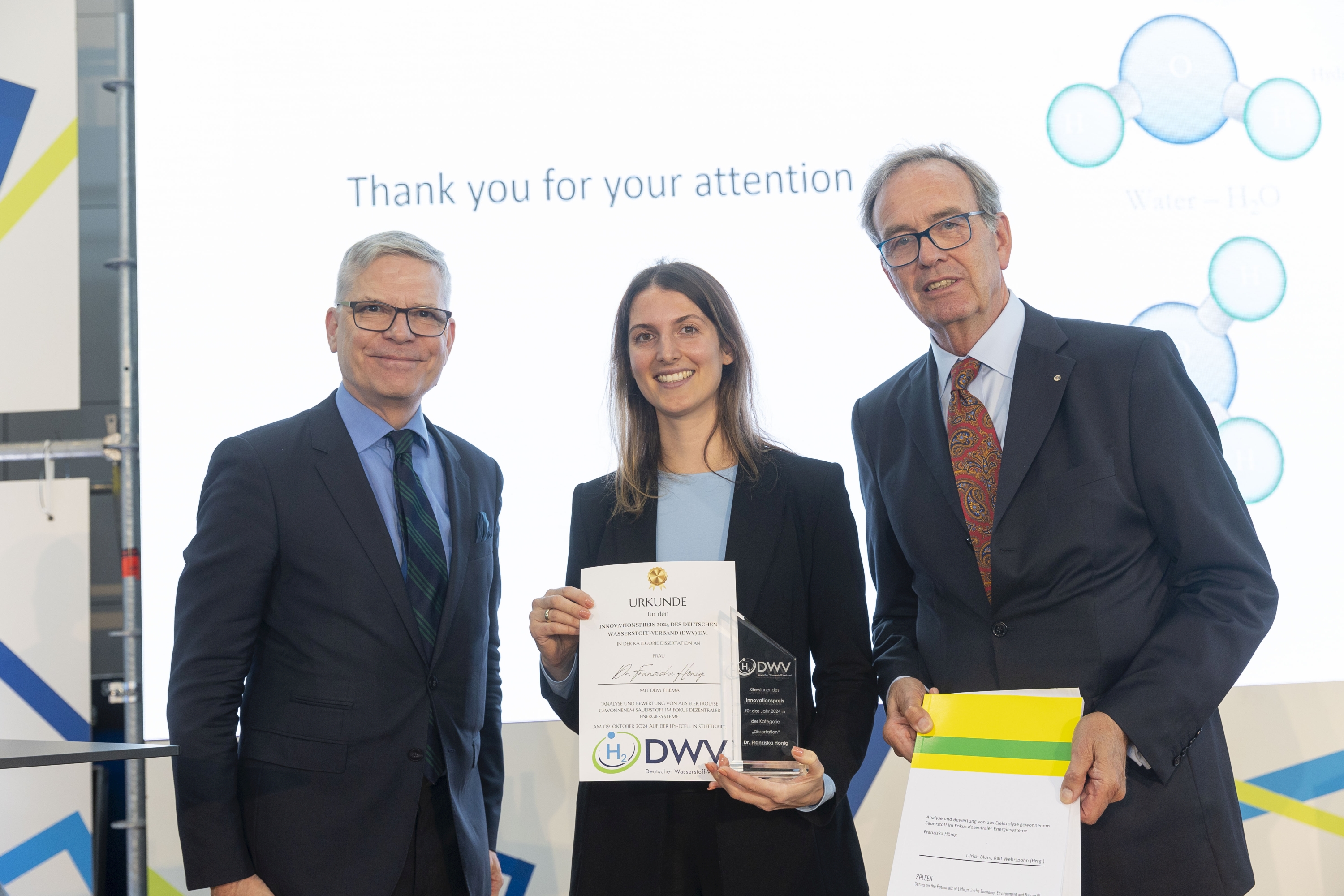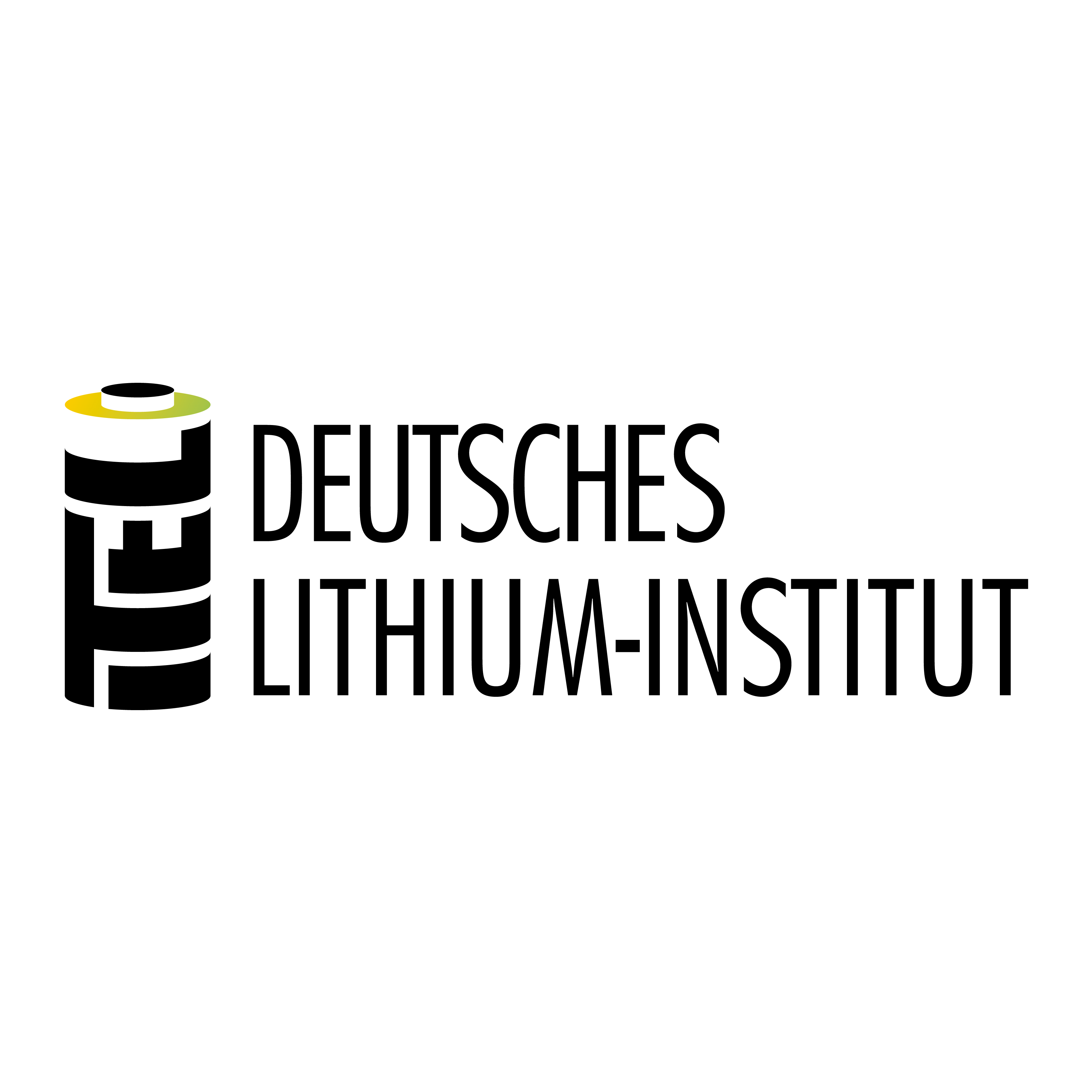Green hydrogen, produced by means of water electrolysis using renewable energies, is considered a key element for a successful energy transition. In her doctoral thesis, Dr. Franziska Hönig focuses on the potential of oxygen, which is also produced during electrolysis, in particular for the economic efficiency of decentralized energy systems. Her doctorate is based on the results of the "LocalHy" project, which was carried out at the Fraunhofer Center for Silicon Photovoltaics CSP, and was supervised by Martin Luther University Halle-Wittenberg (MLU) and ITEL - Deutsches Lithiuminstitut GmbH. The dissertation was awarded the Innovation Award of the German Hydrogen and Fuel Cell Association (DWV) today.


Green hydrogen is booming. It is estimated that around 37 billion US dollars have been invested in green hydrogen projects worldwide between 2020 and 2022. The "LocalHy" research project was exemplary for the diverse potential of the technology: the project partners set up a decentralized water electrolysis system in a sewage treatment plant in Heubisch (Thuringia). The hydrogen produced using wind and solar energy was made available as fuel for fuel cell vehicles at a specially developed filling station. Furthermore, they used hydrogen as energy storage. The project developed an emission-free combustion engine that can be used to generate electrical and thermal energy. The highlight of "LocalHy": not only the hydrogen from the electrolysis was used, but also the oxygen. It was used to aerate the wastewater treatment tank and thus supported the wastewater purification processes.
"Water electrolysis produces up to 8 kilograms of oxygen for every kilogram of hydrogen. However, this valuable by-product is still being neglected when investing in the hydrogen economy and, in particular, when considering its economic viability," says Hönig. "If we take oxygen into account and develop attractive usage scenarios for it, electrolysis systems and power-to-gas plants can generally be made more efficient and raised above the profitability threshold. Under certain conditions, oxygen could even become the main product of water electrolysis. It is a great honor for me to receive the DWV Innovation Award, because this recognition also raises attention to the utilization path of electrolytically produced oxygen," says the industrial engineer.
Industrially produced oxygen, which is usually extracted from the ambient air using separation processes, is an important raw material in metal production and processing, for example, as well as in refineries, paper production, the semiconductor industry and the food sector. As part of her doctoral thesis, Hönig developed the "Green Hydrogen Oxygen Simulation Tool (GHOST)", a techno-economic system analysis tool that focuses on the oxygen side as well as the hydrogen pathway, in order to evaluate sources of revenue. This system makes it possible to vary the process and material parameters on the input and output side and also takes into account location-related factors for electricity generation, capital costs and prices for CO2 licenses, among other things. Based on the findings from "LocalHy" and other data and simulations, she was able to show that the production costs for green hydrogen can be reduced by up to 45 percent if the commercial use of oxygen is also tapped into.
"As a research associate at Fraunhofer CSP, Franziska Hönig has achieved enormously valuable results. With a great deal of vision and expertise, her doctoral thesis shows how creative thinking and a clear focus on resource efficiency and circular solutions in an integrated hydrogen economy enable attractive applications for industry. I am particularly pleased about her award because the doctoral thesis was written under difficult conditions after Covid-19 restricted test operations at LocalHy," says Dr. Matthias Ebert, Group Leader "PV Systems and Integration" at Fraunhofer CSP.
Prof. Dr. Dr. h.c. Ulrich Blum, Managing Director of ITEL - Deutsches Lithiuminstitut GmbH and one of the supervisors of the thesis defended at MLU on February 23, 2023, praised the dissertation as "extremely integrative and multidisciplinary work that very convincingly combines different concepts and is of considerable practical relevance, from technological issues to considerations of demand development and network infrastructure - always taking into account the necessary profitability. The work shows promising ways in which the transition to an efficient hydrogen economy can be accelerated through the use of attractive by-products of water electrolysis. I would like to congratulate Franziska Hönig on winning the DWV Innovation Award!"
 Fraunhofer Center for Silicon Photovoltaics CSP
Fraunhofer Center for Silicon Photovoltaics CSP